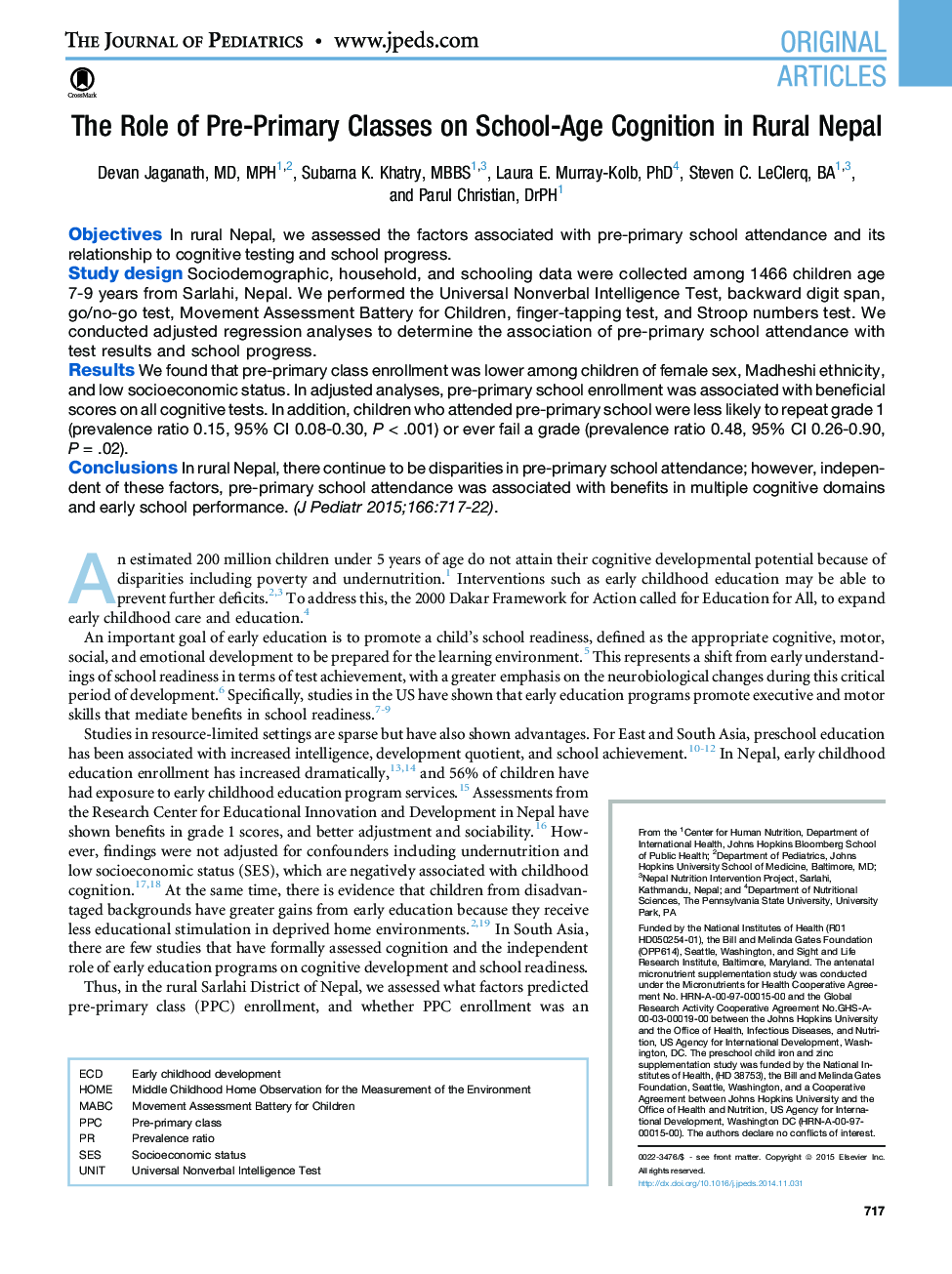| کد مقاله | کد نشریه | سال انتشار | مقاله انگلیسی | نسخه تمام متن |
|---|---|---|---|---|
| 6221344 | 1607445 | 2015 | 6 صفحه PDF | دانلود رایگان |
ObjectivesIn rural Nepal, we assessed the factors associated with pre-primary school attendance and its relationship to cognitive testing and school progress.Study designSociodemographic, household, and schooling data were collected among 1466 children age 7-9 years from Sarlahi, Nepal. We performed the Universal Nonverbal Intelligence Test, backward digit span, go/no-go test, Movement Assessment Battery for Children, finger-tapping test, and Stroop numbers test. We conducted adjusted regression analyses to determine the association of pre-primary school attendance with test results and school progress.ResultsWe found that pre-primary class enrollment was lower among children of female sex, Madheshi ethnicity, and low socioeconomic status. In adjusted analyses, pre-primary school enrollment was associated with beneficial scores on all cognitive tests. In addition, children who attended pre-primary school were less likely to repeat grade 1 (prevalence ratio 0.15, 95% CI 0.08-0.30, P < .001) or ever fail a grade (prevalence ratio 0.48, 95% CI 0.26-0.90, P = .02).ConclusionsIn rural Nepal, there continue to be disparities in pre-primary school attendance; however, independent of these factors, pre-primary school attendance was associated with benefits in multiple cognitive domains and early school performance.
Journal: The Journal of Pediatrics - Volume 166, Issue 3, March 2015, Pages 717–722
